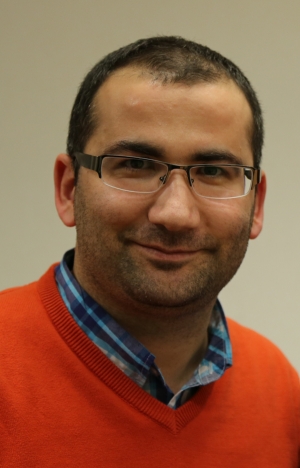The economics of happiness
Research news
The “happiness gap” between individuals in a relationship can predict the likelihood of a divorce, according to Deakin University researcher Dr Cahit Guven.
Dr Guven argues that the study of economics is largely the study of human welfare, and can play an important role in understanding and improving an individual’s quality of life, whether in marriage, education, work or other areas of our lives. His research has recently been cited in the "Financial Times."
A senior lecturer in the Department of Economics within the Deakin Business School, Dr Guven has conducted research around the economics of wellbeing, family and health for the past eight years.
He argues that by looking at life’s big issues – and the interactions that occur within diverse and sometimes challenging environments – economists can play a central role in analysing trends, preparing forecasts and shaping policies.
“I’m an econometrician, so we look at statistical analysis using very large data sets (of more than a million people) to try and get an idea of the impact of issues, events and behaviours – such as how social capital affects happiness, the happiness difference between couples, or the connection between height and cognitive function, for instance,” he explained.
Working across a range of projects, Dr Guven began studying the “economics of happiness” while completing his PhD in the USA.
“I wanted to do something different and there were only a couple of papers out about this topic. I thought that it was one that a lot of people would be very interested in,” he said.
Dr Guven’s PhD thesis – which was later cited in a report to the US Congress and in “The Wall Street Journal” – looked at how happiness was affected by a person’s financial savings and consumption pattern. It also explored how perception about others affected contentment.
“When people compare themselves to their neighbours in terms of their consumption, it can make them very miserable,” he observed.
After studying economic and lifestyle satisfaction in Britain and Germany, his work led him to Deakin in 2009, where he continued to research issues around happiness, and mental and social well-being – and embarked on a ground-breaking research study that investigated the “happiness gap” between couples. With his colleagues, he sought to discover if the difference in happiness really mattered and, if so, could if it predict divorce.
Using data from Britain, Germany and Australia, the researchers found that the risk of a break-up was greater when there was a significant gap in happiness between husbands and wives.
The factors that contributed to a widening of the “happiness gap” included imbalanced domestic workloads and income levels, as well as disparity in social, cultural and religious backgrounds.
“The research supports the view that for couples to maintain an enduring partnership, they need to be in the same “happiness tier.”
“These results are valuable for governments and organisations drafting policies that affect issues such as the division of household labor or incomes levels,” Dr Guven explained.
With that project now complete, Dr Guven is currently researching the impact of English-language proficiency on immigrants to Australia, as a means of informing decision making around policies and investment in adult education.
“It’s been six years since I completed my PhD, so I feel that after publishing five years of happiness research I can explore other fields as well – that will hopefully make a difference to the welfare of the future generations,” he said.
Share this story
 'Happiness' economist, Dr Cahit Guven.
'Happiness' economist, Dr Cahit Guven.
